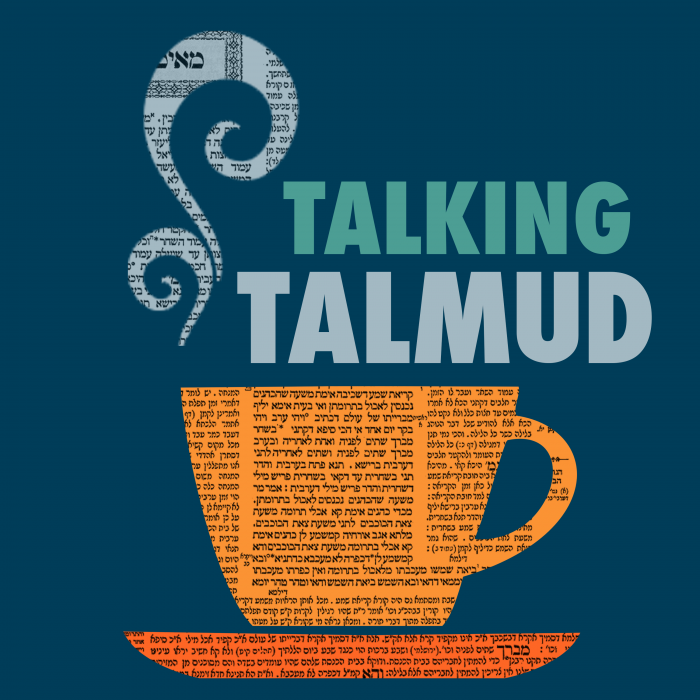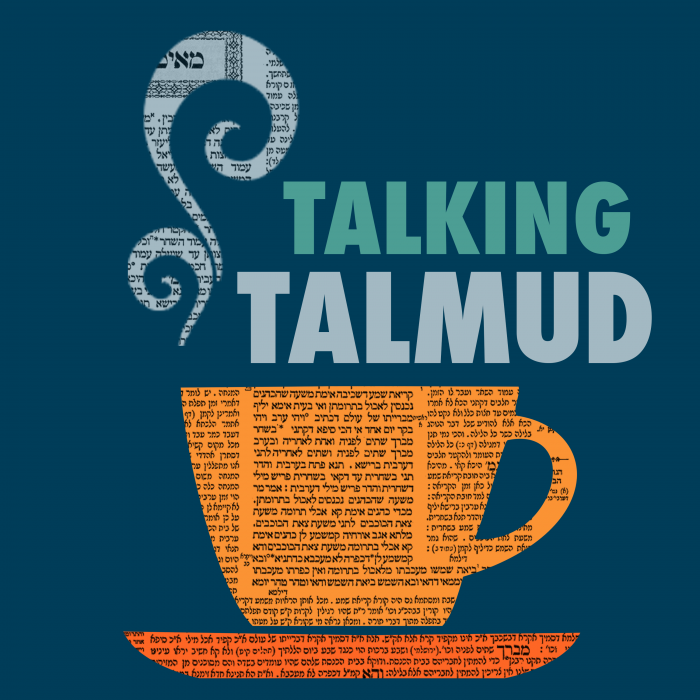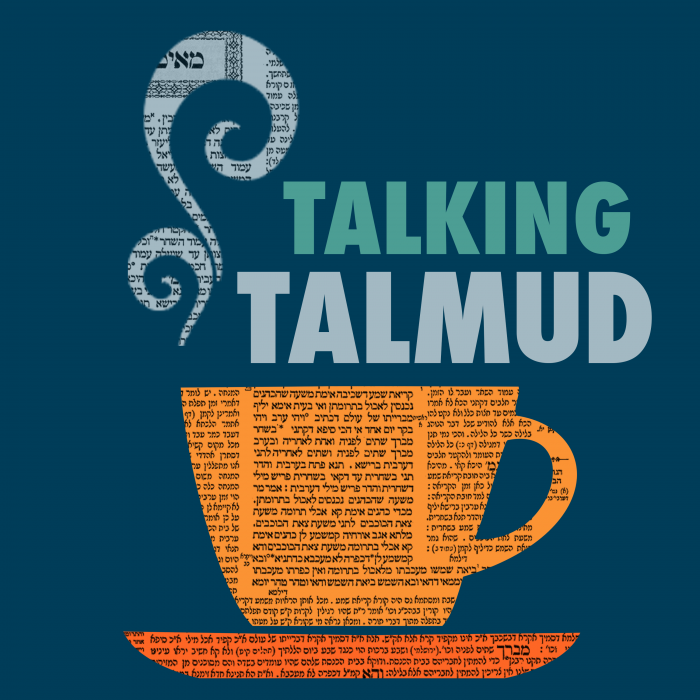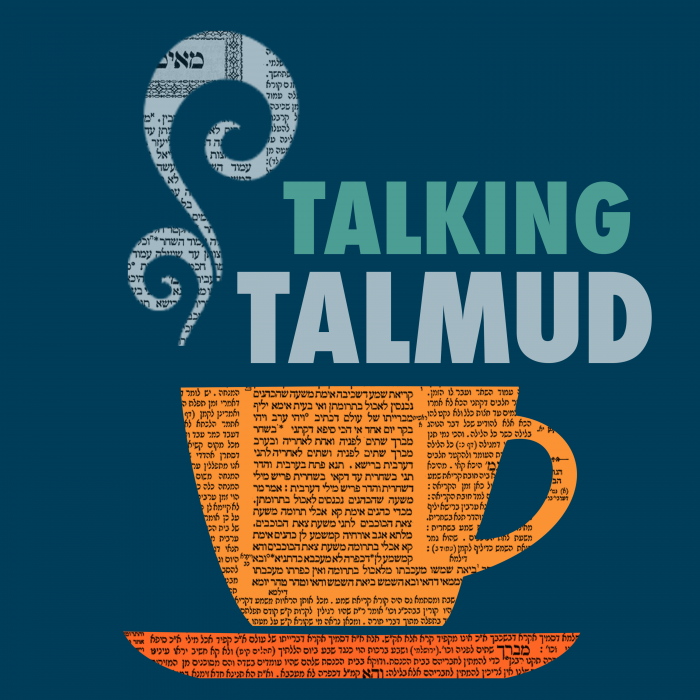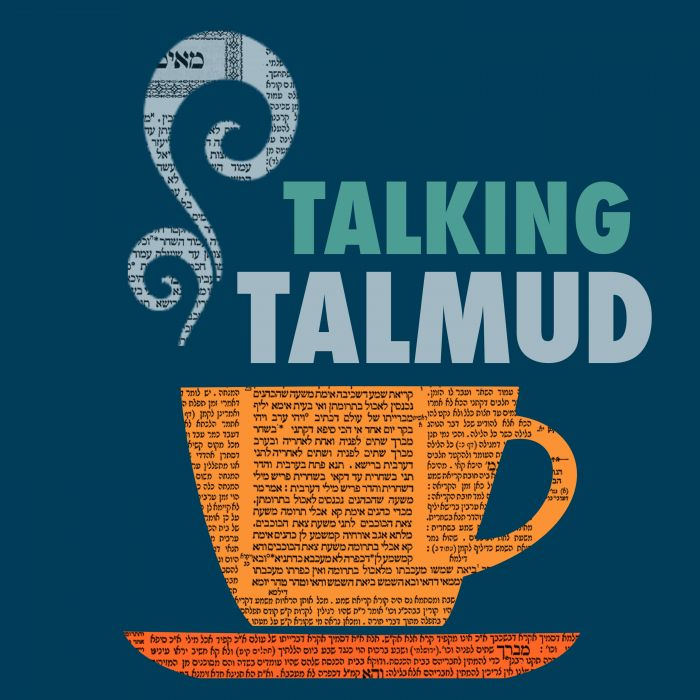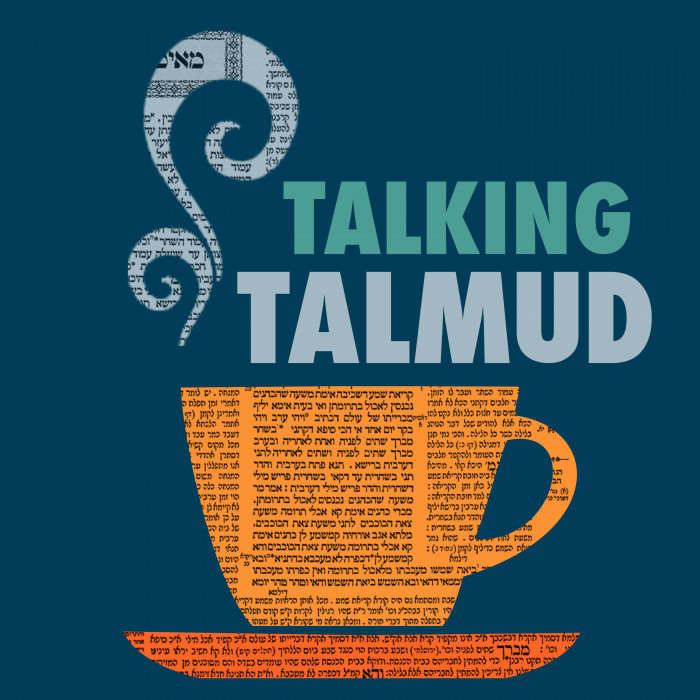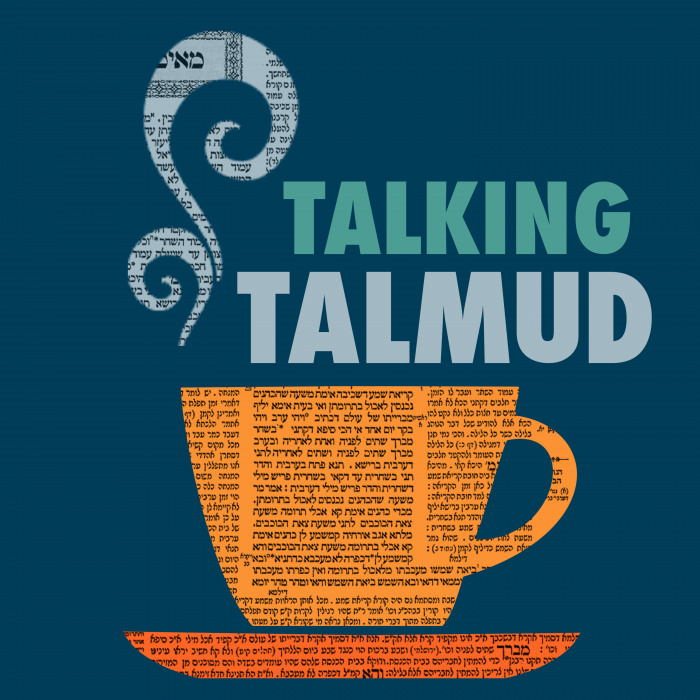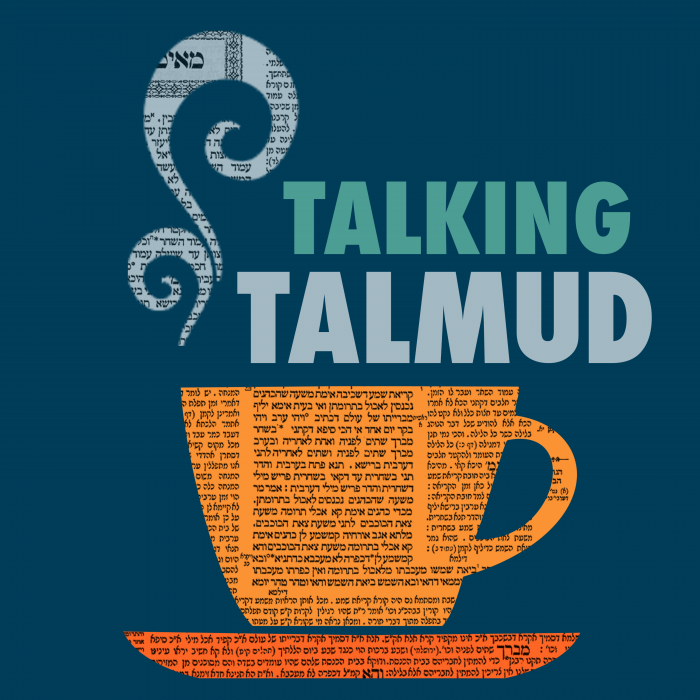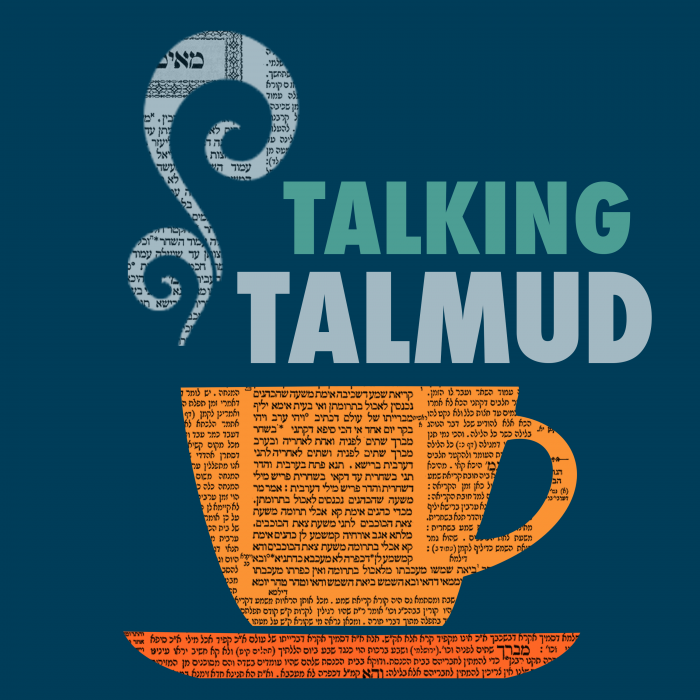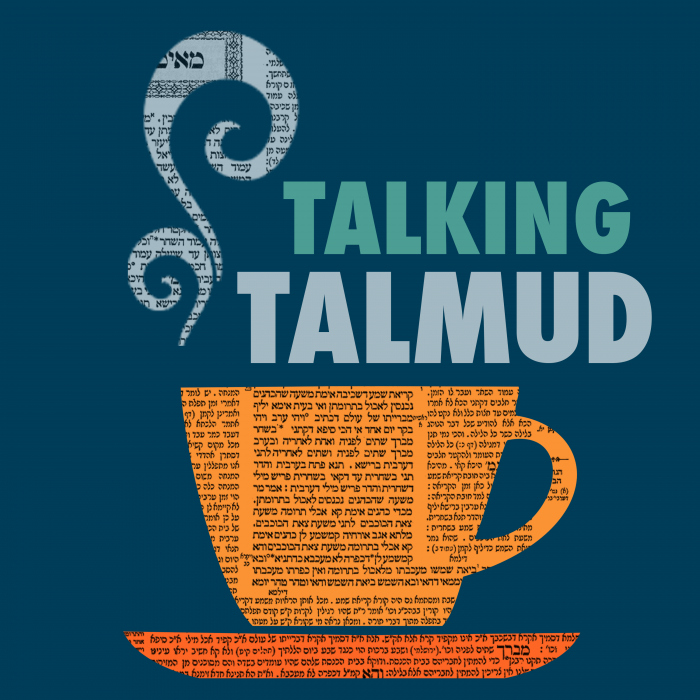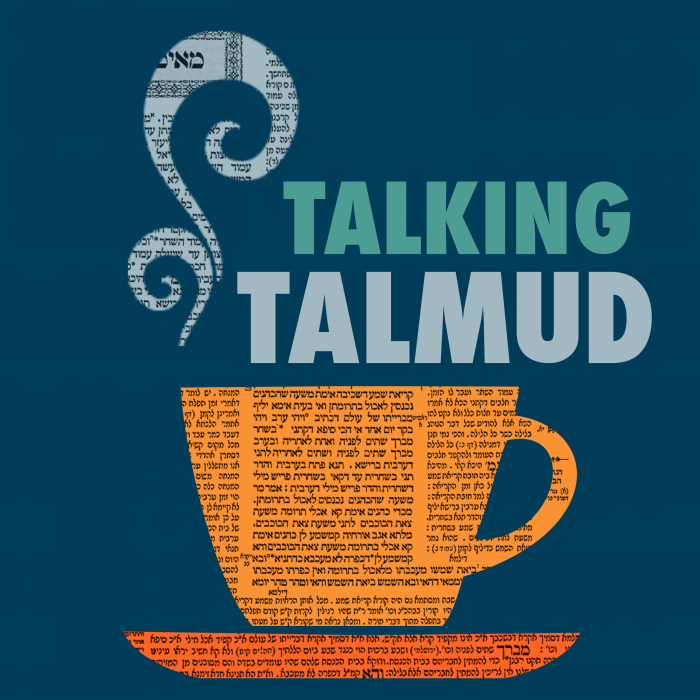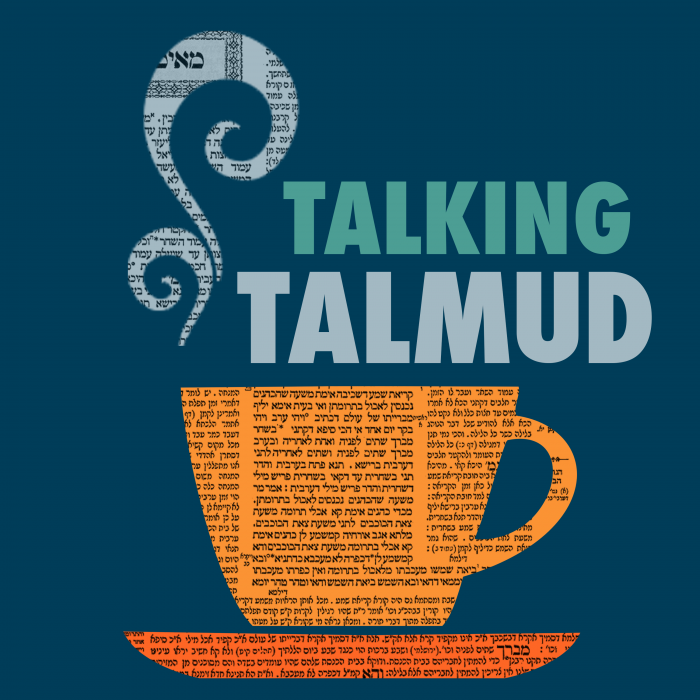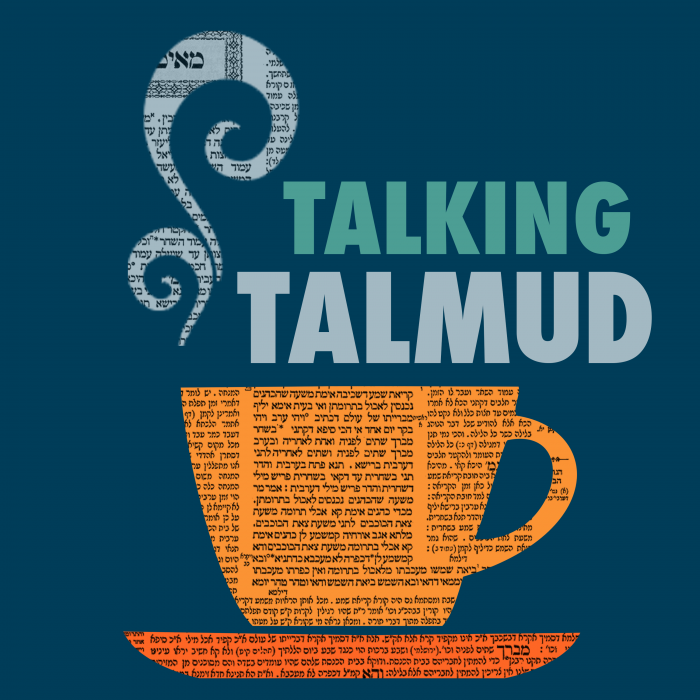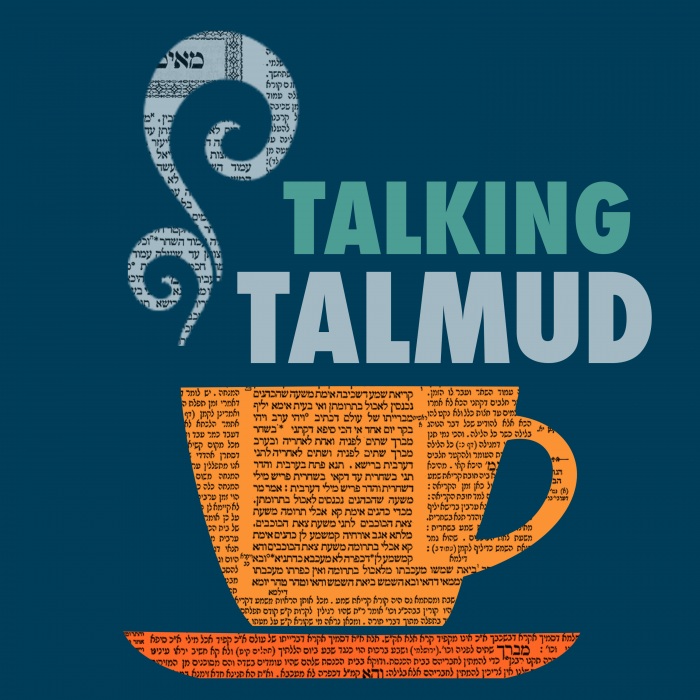One should pray facing the wall. One’s bed should be facing North to South. One who finishes praying earlier, should not leave a friend behind. Is this the case in every situation? Evil spirits (which may just mean anxieties) are all around us. What is the best way to deal with it? Best to pray in a synagogue. If ten people pray together, three people judge together and two (or even one) people learn together, the presence of God is there. God wears (figuratively) tefillin. Just as we declare the God is one, God declares that we are the chosen one. Best to choose a place and always pray there. One should not run away from the synagogue. One gets rewarded for running to learn, for crowding on to hear a shiur, for delving into the text, for being silent in the house of a mourner, for giving charity on a fast day, for praising a bride and groom. One cannot pray while facing a different direction from everyone else. One should be careful always to pray the mincha service (and all the others). One must make the bride and groom happy at their wedding.
This month’s learning is dedicated to the refuah shleima of our dear friend, Phyllis Hecht, גיטל פעשא בת מאשה רחל by all her many friends who love and admire her. Phyllis’ emuna, strength, and positivity are an inspiration.
Want to dedicate learning? Get started here:


Today’s daily daf tools:
This month’s learning is dedicated to the refuah shleima of our dear friend, Phyllis Hecht, גיטל פעשא בת מאשה רחל by all her many friends who love and admire her. Phyllis’ emuna, strength, and positivity are an inspiration.
Today’s daily daf tools:
Delve Deeper
Broaden your understanding of the topics on this daf with classes and podcasts from top women Talmud scholars.
New to Talmud?
Check out our resources designed to help you navigate a page of Talmud – and study at the pace, level and style that fits you.
The Hadran Women’s Tapestry
Meet the diverse women learning Gemara at Hadran and hear their stories.
Berakhot 6
אָמַר רַבִּי יוֹסֵי בְּרַבִּי חֲנִינָא: זוֹכֶה לַבְּרָכוֹת הַלָּלוּ, שֶׁנֶּאֱמַר: ״לוּא הִקְשַׁבְתָּ לְמִצְוֹתָי וַיְהִי כַנָּהָר שְׁלוֹמֶךָ וְצִדְקָתְךָ כְּגַלֵּי הַיָּם. וַיְהִי כַחוֹל זַרְעֶךָ וְצֶאֱצָאֵי מֵעֶיךָ״ וְגוֹ׳.
In terms of this reward, Rabbi Yosei, son of Rabbi Ḥanina said: One who waits in the synagogue for the other to finish his prayer merits the following blessings, as it is stated: “If only you had listened to My mitzvot then your peace would be as a river, and your righteousness as the waves of the sea. Your seed would be as the sand, and the offspring of your body like the grains thereof; his name would be neither cut off nor destroyed from before Me” (Isaiah 48:18–19). The explanation of this passage is based on the etymological similarity between the word mitzva and the word tzevet, which means group. If he keeps the other person company and does not abandon him after his prayer, all of the blessings that appear later in the verse will be fulfilled in him (Talmidei Rabbeinu Yona).
תַּנְיָא, אַבָּא בִּנְיָמִין אוֹמֵר: אִלְמָלֵי נִתְּנָה רְשׁוּת לָעַיִן לִרְאוֹת — אֵין כׇּל בְּרִיָּה יְכוֹלָה לַעֲמוֹד מִפְּנֵי הַמַּזִּיקִין.
In another baraita it was taught that Abba Binyamin says: If the eye was given permission to see, no creature would be able to withstand the abundance and ubiquity of the demons and continue to live unaffected by them.
אָמַר אַבָּיֵי: אִינְהוּ נְפִישִׁי מִינַּן, וְקָיְימִי עֲלַן כִּי כִּסְלָא לְאוּגְיָא.
Similarly, Abaye said: They are more numerous than we are and they stand over us like mounds of earth surrounding a pit.
אָמַר רַב הוּנָא: כֹּל חַד וְחַד מִינַּן, אַלְפָא מִשְּׂמָאלֵיהּ וּרְבַבְתָּא מִיַּמִּינֵיהּ.
Rav Huna said: Each and every one of us has a thousand demons to his left and ten thousand to his right. God protects man from these demons, as it says in the verse: “A thousand may fall at your side, and ten thousand at your right hand; they will not approach you” (Psalms 91:7).
אָמַר רָבָא: הַאי דּוּחְקָא דְּהָוֵי בְּכַלָּה — מִנַּיְיהוּ הָוֵי. הָנֵי בִּרְכֵי דְּשָׁלְהִי — מִנַּיְיהוּ. הָנֵי מָאנֵי דְרַבָּנַן דְּבָלוּ — מֵחוּפְיָא דִידְהוּ. הָנֵי כַּרְעֵי דְּמִנַּקְפָן — מִנַּיְיהוּ.
Summarizing the effects of the demons, Rava said:
The crowding at the kalla, the gatherings for Torah study during Elul and Adar, is from the demons;
those knees that are fatigued even though one did not exert himself is from the demons;
those clothes of the Sages that wear out, despite the fact that they do not engage in physical labor, is from friction with the demons;
those feet that are in pain is from the demons.
הַאי מַאן דְּבָעֵי לְמִידַּע לְהוּ לַיְיתֵי קִיטְמָא נְהִילָא, וְנַהְדַּר אַפּוּרְיֵיהּ, וּבְצַפְרָא חָזֵי כִּי כַּרְעֵי דְתַרְנְגוֹלָא. הַאי מַאן דְּבָעֵי לְמֶחֱזִינְהוּ, לַיְתֵי שִׁלְיְיתָא דְּשׁוּנָּרְתָּא אוּכַּמְתָּא בַּת אוּכַּמְתָּא בּוּכְרְתָא בַּת בּוּכְרְתָא, וְלִיקְלְיֵהּ בְּנוּרָא, וְלִשְׁחֲקֵיהּ, וְלִימְלֵי עֵינֵיהּ מִנֵּיהּ, וְחָזֵי לְהוּ. וְלִשְׁדְּיֵיהּ בְּגוּבְתָּא דְפַרְזְלָא, וְלַחְתְּמֵיהּ בְּגוּשְׁפַּנְקָא דְפַרְזְלָא, דִּילְמָא גָּנְבִי מִנֵּיהּ, וְלַחְתּוֹם פּוּמֵּיהּ, כִּי הֵיכִי דְּלָא לִיתַּזַּק. רַב בִּיבִי בַּר אַבָּיֵי עֲבַד הָכִי, חֲזָא וְאִתַּזַּק, בְּעוֹ רַבָּנַן רַחֲמֵי עֲלֵיהּ, וְאִתַּסִּי.
One who seeks to know that the demons exist should place fine ashes around his bed, and in the morning the demons’ footprints appear like chickens’ footprints, in the ash. One who seeks to see them should take the afterbirth of a firstborn female black cat, born to a firstborn female black cat, burn it in the fire, grind it and place it in his eyes, and he will see them. He must then place the ashes in an iron tube sealed with an iron seal [gushpanka] lest the demons steal it from him, and then seal the opening so he will not be harmed. Rav Beivai bar Abaye performed this procedure, saw the demons, and was harmed. The Sages prayed for mercy on his behalf and he was healed.
תַּנְיָא, אַבָּא בִּנְיָמִין אוֹמֵר: אֵין תְּפִלָּה שֶׁל אָדָם נִשְׁמַעַת אֶלָּא בְּבֵית הַכְּנֶסֶת, שֶׁנֶּאֱמַר: ״לִשְׁמֹעַ אֶל הָרִנָּה וְאֶל הַתְּפִלָּה״. בִּמְקוֹם רִנָּה — שָׁם תְּהֵא תְּפִלָּה.
It was taught in a baraita that Abba Binyamin said: One’s prayer is only fully heard in a synagogue, as it is stated with regard to King Solomon’s prayer in the Temple: “Yet have You turned toward the prayer of Your servant and to his supplication, Lord my God, to listen to the song and the prayer which Your servant prays before You on this day” (I Kings 8:28). The following verse concludes: “To hear the prayer Your servant directs toward this place” (I Kings 8:29). We see that one’s prayer is heard specifically in the Temple, of which the synagogue is a microcosm (Rav Yoshiyahu Pinto). It may be inferred that in a place of song, a synagogue where God’s praises are sung, there prayer should be.
אָמַר רָבִין בַּר רַב אַדָּא, אָמַר רַבִּי יִצְחָק: מִנַּיִן שֶׁהַקָּדוֹשׁ בָּרוּךְ הוּא מָצוּי בְּבֵית הַכְּנֶסֶת — שֶׁנֶּאֱמַר: ״אֱלֹהִים נִצָּב בַּעֲדַת אֵל״.
In explaining Abba Binyamin’s statement, Ravin bar Rav Adda said that Rabbi Yitzḥak said: From where is it derived that the Holy One, Blessed be He, is located in a synagogue? As it is stated: “God stands in the congregation of God; in the midst of the judges He judges” (Psalms 82:1). The congregation of God is the place where people congregate to sing God’s praises, and God is located among His congregation.
וּמִנַּיִן לַעֲשָׂרָה שֶׁמִּתְפַּלְּלִין שֶׁשְּׁכִינָה עִמָּהֶם — שֶׁנֶּאֱמַר: ״אֱלֹהִים נִצָּב בַּעֲדַת אֵל״.
And from where is it derived that ten people who pray, the Divine Presence is with them? As it is stated: “God stands in the congregation of God,” and the minimum number of people that constitute a congregation is a quorum of ten.
וּמִנַּיִן לִשְׁלֹשָׁה שֶׁיּוֹשְׁבִין בַּדִּין שֶׁשְּׁכִינָה עִמָּהֶם, שֶׁנֶּאֱמַר: ״בְּקֶרֶב אֱלֹהִים יִשְׁפֹּט״.
From where is it derived that three who sit in judgment, the Divine Presence is with them? It is derived from this same verse, as it is stated: “In the midst of the judges He judges,” and the minimum number of judges that comprises a court is three.
וּמִנַּיִן לִשְׁנַיִם שֶׁיּוֹשְׁבִין וְעוֹסְקִין בַּתּוֹרָה שֶׁשְּׁכִינָה עִמָּהֶם — שֶׁנֶּאֱמַר: ״אָז נִדְבְּרוּ יִרְאֵי ה׳ אִישׁ אֶל רֵעֵהוּ וַיַּקְשֵׁב ה׳״ וְגוֹ׳.
From where is it derived that two who sit and engage in Torah study, the Divine Presence is with them? As it is stated: “Then they that feared the Lord spoke one with the other, and the Lord listened, and heard, and a book of remembrance was written before Him, for them that fear the Lord, and that think upon His name” (Malachi 3:16). The Divine Presence listens to any two God-fearing individuals who speak with each other.
מַאי ״וּלְחֹשְׁבֵי שְׁמוֹ״? אָמַר רַב אָשֵׁי: חָשַׁב אָדָם לַעֲשׂוֹת מִצְוָה, וְנֶאֱנַס, וְלֹא עֲשָׂאָהּ — מַעֲלֶה עָלָיו הַכָּתוּב כְּאִילּוּ עֲשָׂאָהּ.
With regard to this verse, the Gemara asks: What is the meaning of the phrase, “And that think upon His name”? Rav Ashi said: If a person intended to perform a mitzva, but due to circumstances beyond his control, he did not perform it, the verse ascribes him credit as if he performed the mitzva, as he is among those that think upon His name.
וּמִנַּיִן שֶׁאֲפִילּוּ אֶחָד שֶׁיּוֹשֵׁב וְעוֹסֵק בַּתּוֹרָה שֶׁשְּׁכִינָה עִמּוֹ — שֶׁנֶּאֱמַר: ״בְּכָל הַמָּקוֹם אֲשֶׁר אַזְכִּיר אֶת שְׁמִי אָבוֹא אֵלֶיךָ וּבֵרַכְתִּיךָ״.
The Gemara returns to Ravin bar Rav Adda’s statement: And from where is it derived that when even one who sits and engages in Torah study, the Divine Presence is with him? As it is stated: “In every place where I cause My Name to be mentioned, I will come to you and bless you” (Exodus 20:21); God blesses even a single person who mentions God’s name, a reference to Torah study (Iyyun Ya’akov).
וְכִי מֵאַחַר דַּאֲפִילּוּ חַד, תְּרֵי מִבַּעְיָא?! תְּרֵי — מִכַּתְבָן מִלַּיְיהוּ בְּסֵפֶר הַזִּכְרוֹנוֹת, חַד — לָא מִכַּתְבָן מִלֵּיהּ בְּסֵפֶר הַזִּכְרוֹנוֹת.
The Gemara asks: Since the Divine Presence rests even upon one who engages in Torah study, was it necessary to say that the Divine Presence rests upon two who study Torah together? The Gemara answers: There is a difference between them. Two people, their words of Torah are written in the book of remembrance, as it is stated: “And a book of remembrance was written”; however a single individual’s words of Torah are not written in a book of remembrance.
וְכִי מֵאַחַר דַּאֲפִילּוּ תְּרֵי, תְּלָתָא מִבַּעְיָא?! מַהוּ דְּתֵימָא: דִּינָא שְׁלָמָא בְּעָלְמָא הוּא, וְלָא אָתְיָא שְׁכִינָה, קָמַשְׁמַע לָן דְּדִינָא נָמֵי הַיְינוּ תּוֹרָה.
The Gemara continues: Since the Divine Presence rests even upon two who engage in Torah study, is it necessary to mention three? The Gemara answers: Here too, a special verse is necessary lest you say that judgment is merely to keep the peace among the citizenry, and the Divine Presence does not come and rest upon those who sit in judgment as they are not engaged in Torah study. Ravin bar Rav Adda teaches us that sitting in judgment is also Torah.
וְכִי מֵאַחַר דַּאֲפִילּוּ תְּלָתָא, עֲשָׂרָה מִבַּעְיָא?! עֲשָׂרָה — קָדְמָה שְׁכִינָה וְאָתְיָא. תְּלָתָא — עַד דְּיָתְבִי.
The Gemara asks: Since the Divine Presence rests even upon three, is it necessary to mention ten? The Gemara answers: The Divine Presence arrives before a group of ten, as the verse: “God stands in the congregation of God,” indicates that when the ten individuals who comprise a congregation arrive, the Divine Presence is already there. For a group of three judges, however, the Divine Presence does not arrive until they sit and begin their deliberations, as in the midst of the judges He judges. God aids them in their judgment, but does not arrive before them.
אָמַר רַבִּי אָבִין בַּר רַב אַדָּא, אָמַר רַבִּי יִצְחָק: מִנַּיִן שֶׁהַקָּדוֹשׁ בָּרוּךְ הוּא מַנִּיחַ תְּפִילִּין שֶׁנֶּאֱמַר: ״נִשְׁבַּע ה׳ בִּימִינוֹ וּבִזְרוֹעַ עֻזּוֹ״.
The Gemara cites another aggadic statement: Rabbi Avin bar Rav Adda said that Rabbi Yitzḥak said: From where is it derived that the Holy One, Blessed be He, wears phylacteries? As it is stated: “The Lord has sworn by His right hand, and by the arm of His strength” (Isaiah 62:8). Since it is customary to swear upon holy objects, it is understood that His right hand and the arm of His strength are the holy objects upon which God swore.
״בִּימִינוֹ״ — זוֹ תּוֹרָה, שֶׁנֶּאֱמַר: ״מִימִינוֹ אֵשׁ דָּת לָמוֹ״, ״וּבִזְרוֹעַ עֻזּוֹ״ — אֵלּוּ תְּפִילִּין, שֶׁנֶּאֱמַר: ״ה׳ עֹז לְעַמּוֹ יִתֵּן״.
Specifically, “His right hand” refers to the Torah, as it is stated in describing the giving of the Torah: “From His right hand, a fiery law for His people” (Deuteronomy 33:2). “The arm of His strength,” His left hand, refers to phylacteries, as it is stated: “The Lord gave strength to His nation” (Psalms 29:11), in the form of the mitzva of phylacteries.
וּמִנַּיִן שֶׁהַתְּפִילִּין עוֹז הֵם לְיִשְׂרָאֵל — דִּכְתִיב: ״וְרָאוּ כׇּל עַמֵּי הָאָרֶץ כִּי שֵׁם ה׳ נִקְרָא עָלֶיךָ וְיָרְאוּ מִמֶּךָּ״. וְתַנְיָא, רַבִּי אֱלִיעֶזֶר הַגָּדוֹל אוֹמֵר: אֵלּוּ תְּפִילִּין שֶׁבָּרֹאשׁ.
The Gemara asks: And from where is it derived that phylacteries provide strength for Israel? As it is written: “And all the nations of the land shall see that the name of the Lord is called upon you, and they will fear you” (Deuteronomy 28:10). It was taught in a baraita that Rabbi Eliezer the Great says: This is a reference to the phylacteries of the head, upon which the name of God is written in fulfillment of the verse: “That the name of the Lord is called upon you.”
אֲמַר לֵיהּ רַב נַחְמָן בַּר יִצְחָק לְרַב חִיָּיא בַּר אָבִין: הָנֵי תְּפִילִּין דְּמָרֵי עָלְמָא מָה כְּתִיב בְּהוּ? אֲמַר לֵיהּ ״וּמִי כְּעַמְּךָ יִשְׂרָאֵל גּוֹי אֶחָד בָּאָרֶץ״.
Rav Naḥman bar Yitzḥak said to Rav Ḥiyya bar Avin: What is written in the phylacteries of the Master of the world? Rav Ḥiyya bar Avin replied: It is written: “Who is like Your people, Israel, one nation in the land?” (I Chronicles 17:21). God’s phylacteries serve to connect Him, in a sense, to the world, the essence of which is Israel.
וּמִי מִשְׁתַּבַּח קוּדְשָׁא בְּרִיךְ הוּא בְּשִׁבְחַיְיהוּ דְּיִשְׂרָאֵל? אִין, דִּכְתִיב: ״אֶת ה׳ הֶאֱמַרְתָּ הַיּוֹם״. וּכְתִיב: ״וַה׳ הֶאֱמִירְךָ הַיּוֹם״, אָמַר לָהֶם הַקָּדוֹשׁ בָּרוּךְ הוּא לְיִשְׂרָאֵל: אַתֶּם עֲשִׂיתוּנִי חֲטִיבָה אַחַת בָּעוֹלָם, וַאֲנִי אֶעֱשֶׂה אֶתְכֶם חֲטִיבָה אַחַת בָּעוֹלָם.
Rav Naḥman bar Yitzḥak continues: Is the Holy One, Blessed be He, glorified through the glory of Israel? Rav Ḥiyya bar Avin answered: Yes, as indicated by the juxtaposition of two verses; as it is stated: “You have affirmed, this day, that the Lord is your God, and that you will walk in His ways and keep His laws and commandments, and listen to His voice.” And the subsequent verse states: “And the Lord has affirmed, this day, that you are His treasure, as He spoke to you, to keep His commandments” (Deuteronomy 26:17–18). From these two verses it is derived that the Holy One, Blessed be He, said to Israel: You have made Me a single entity [ḥativa] in the world, as you singled Me out as separate and unique. And because of this, I will make you a single entity in the world, and you will be a treasured nation, chosen by God.
אַתֶּם עֲשִׂיתוּנִי חֲטִיבָה אַחַת בָּעוֹלָם, שֶׁנֶּאֱמַר: ״שְׁמַע יִשְׂרָאֵל ה׳ אֱלֹהֵינוּ ה׳ אֶחָד״, וַאֲנִי אֶעֱשֶׂה אֶתְכֶם חֲטִיבָה אַחַת בָּעוֹלָם״, שֶׁנֶּאֱמַר ״וּמִי כְּעַמְּךָ יִשְׂרָאֵל גּוֹי אֶחָד בָּאָרֶץ״.
You have made Me a single entity in the world, as it is stated that Israel declares God’s oneness by saying: “Hear, Israel, the Lord is our God, the Lord is One” (Deuteronomy 6:4). And because of this, I will make you a single entity in the world, unique and elevated with the utterance: “Who is like Your people, Israel, one nation in the land?” Consequently, the Holy One, Blessed be He, is glorified through the glory of Israel whose praises are written in God’s phylacteries.
אֲמַר לֵיהּ רַב אַחָא בְּרֵיהּ דְּרָבָא לְרַב אָשֵׁי: תִּינַח בְּחַד בֵּיתָא, בִּשְׁאָר בָּתֵּי מַאי?
Rav Aḥa, son of Rava said to Rav Ashi: It works out well with regard to the contents of one of the four compartments of God’s phylacteries of the head. However, all four compartments of Israel’s phylacteries of the head contain portions of the Torah that praise God. What portions in praise of Israel are written in the rest of the compartments of God’s phylacteries of the head?
אָמַר לֵיהּ: ״כִּי מִי גוֹי גָּדוֹל״, ״וּמִי גּוֹי גָּדוֹל״, ״אַשְׁרֶיךָ יִשְׂרָאֵל״, ״אוֹ הֲנִסָּה אֱלֹהִים״, ״וּלְתִתְּךָ עֶלְיוֹן״.
Rav Ashi said to him: In those three compartments it is written: “For who is a great nation, to whom God is close, like the Lord our God whenever we call upon Him?” (Deuteronomy 4:7); “And who is a great nation, who has righteous statutes and laws, like this entire Torah which I set before you today?” (Deuteronomy 4:8); “Happy are you, Israel, who is like you? A people saved by the Lord, the shield of your help, and that is the sword of your excellence. And your enemies shall dwindle away before you, and you shall tread upon their high places” (Deuteronomy 33:29); “Or has God attempted to go and take for Himself a nation from the midst of another nation, by trials, by signs and by wonders” (Deuteronomy 4:34); “And to elevate you above all nations that He has made, in praise, in name and in glory; that you may be a holy people to the Lord, your God, as He has spoken” (Deuteronomy 26:19).
אִי הָכִי, נְפִישִׁי לְהוּ טוּבֵי בָּתֵּי? אֶלָּא: ״כִּי מִי גוֹי גָּדוֹל״ ״וּמִי גּוֹי גָּדוֹל״ דְּדׇמְיָין לַהֲדָדֵי — בְּחַד בֵּיתָא, ״אַשְׁרֶיךָ יִשְׂרָאֵל״ ״וּמִי כְּעַמְּךָ יִשְׂרָאֵל״ — בְּחַד בֵּיתָא, ״אוֹ הֲנִסָּה אֱלֹהִים״ — בְּחַד בֵּיתָא, ״וּלְתִתְּךָ עֶלְיוֹן״ — בְּחַד בֵּיתָא.
Rav Aḥa, son of Rava, raises an objection: If all of these verses are included in God’s phylacteries of the head, there are too many compartments as more than four verses of praise were listed. Rather, the portions in God’s phylacteries must be arranged as follows: The verses “For who is a great nation” and “And who is a great nation” are included in one compartment, as they are similar. “Happy are you, Israel” and “Who is like your people, Israel” are in one compartment. “Or has God attempted” is in one compartment and “And to elevate you” is in one compartment
וְכוּלְּהוּ כְּתִיבִי בְּאֶדְרָעֵיהּ.
in the phylacteries of the head, where there are four separate compartments. And all of the verses are written together on one parchment in the phylacteries of the arm, which has only one compartment.
אָמַר רָבִין בַּר רַב אַדָּא, אָמַר רַבִּי יִצְחָק: כׇּל הָרָגִיל לָבֹא לְבֵית הַכְּנֶסֶת וְלֹא בָּא יוֹם אֶחָד, הַקָּדוֹשׁ בָּרוּךְ הוּא מְשָׁאֵיל בּוֹ, שֶׁנֶּאֱמַר: ״מִי בָכֶם יְרֵא ה׳ שֹׁמֵעַ בְּקוֹל עַבְדּוֹ אֲשֶׁר הָלַךְ חֲשֵׁכִים וְאֵין נֹגַהּ לוֹ״.
Additionally, Ravin bar Rav Adda said that Rabbi Yitzḥak said: One who is accustomed to come to the synagogue and did not come one day, the Holy One, Blessed be He, asks about him, as it were, to determine what happened to him, as it is stated: “Who among you fears the Lord? Who hears the voice of His servant? Though he walks in darkness and has no light, let him trust in the name of the Lord, and rely upon his God” (Isaiah 50:10). In other words, God asks, who among you fears the Lord yet did not come to hear the voice of His servant the prayer leader, who engages in the service of God? He who went out before dawn and walks in darkness before prayer.
אִם לִדְבַר מִצְוָה הָלַךְ — נוֹגַהּ לוֹ, וְאִם לִדְבַר הָרְשׁוּת הָלַךְ — אֵין נוֹגַהּ לוֹ.
If it is for a matter involving a mitzva that he went and absented himself from prayer in the synagogue, then, despite the darkness, there is light for him, the aura of his mitzva will protect him. But if it is for an optional matter, some mundane purpose, that he went and absented himself from prayer in the synagogue, then, even once the day begins, there is no light for him (Maharsha).
״יִבְטַח בְּשֵׁם ה׳״ מַאי טַעְמָא? — מִשּׁוּם דַּהֲוָה לֵיהּ לִבְטוֹחַ בְּשֵׁם ה׳, וְלָא בְּטַח.
The verse continues: “Let him trust in the name of the Lord.” The Gemara asks: What is the reason that God is so exacting with this person? The Gemara answers: Because he should have relied on the name of the Lord, and trusted that he would not incur any loss if he postponed dealing with his mundane matters until after prayer in the synagogue, and he did not rely on God.
אָמַר רַבִּי יוֹחָנָן: בְּשָׁעָה שֶׁהַקָּדוֹשׁ בָּרוּךְ הוּא בָּא בְּבֵית הַכְּנֶסֶת, וְלֹא מָצָא בָּהּ עֲשָׂרָה — מִיָּד הוּא כּוֹעֵס, שֶׁנֶּאֱמַר: ״מַדּוּעַ בָּאתִי וְאֵין אִישׁ קָרָאתִי וְאֵין עוֹנֶה״.
On this same topic, Rabbi Yoḥanan said: When the Holy One, Blessed be He, enters a synagogue and does not find ten people there, He immediately becomes angry, as it is stated: “Why, when I came, was there no one? When I called, there was no one to answer…Behold, with My rebuke I dry up the sea, I make the rivers a wilderness” (Isaiah 50:2).
אָמַר רַבִּי חֶלְבּוֹ, אָמַר רַב הוּנָא: כׇּל הַקּוֹבֵעַ מָקוֹם לִתְפִלָּתוֹ — אֱלֹהֵי אַבְרָהָם בְּעֶזְרוֹ.
Concerning another aspect of the constancy of prayer, Rabbi Ḥelbo said that Rav Huna said: One who sets a fixed place for his prayer, the God of Abraham assists him. Since prayer parallels the Temple service, it is a sign of respect to set a fixed place for this sacred rite (Rabbi Yoshiyahu Pinto). The God of Abraham assists him because this pious custom evokes Abraham’s conduct.
וּכְשֶׁמֵּת, אוֹמְרִים לוֹ: ״אֵי עָנָיו, אֵי חָסִיד, מִתַּלְמִידָיו שֶׁל אַבְרָהָם אָבִינוּ״.
When he dies, those who eulogize one who set a fixed place for his prayer say about him: “Where is the humble one, where is the pious one, of the disciples of our father Abraham?” Presumably, one who sets a fixed place for prayer is a disciple of Abraham in every respect, including humility and piety (Rabbi Yoshiyahu Pinto).
וְאַבְרָהָם אָבִינוּ מְנָא לַן דִּקְבַע מָקוֹם? דִּכְתִיב: ״וַיַּשְׁכֵּם אַבְרָהָם בַּבֹּקֶר אֶל הַמָּקוֹם אֲשֶׁר עָמַד שָׁם״, וְאֵין ״עֲמִידָה״ אֶלָּא תְּפִלָּה, שֶׁנֶּאֱמַר: ״וַיַּעֲמֹד פִּינְחָס וַיְפַלֵּל״.
The Gemara asks: From where do we derive that Abraham our father set a fixed place for his prayer? The Gemara answers: As it is written: “And Abraham rose in the morning to the place where he had stood before God” (Genesis 19:27), and the verb “standing” means nothing other than prayer, as it is stated: “And Pinehas stood and prayed” (Psalms 106:30).
אָמַר רַבִּי חֶלְבּוֹ, אָמַר רַב הוּנָא: הַיּוֹצֵא מִבֵּית הַכְּנֶסֶת אַל יַפְסִיעַ פְּסִיעָה גַסָּה. אָמַר אַבָּיֵי: לָא אֲמַרַן, אֶלָּא לְמִיפַּק. אֲבָל לְמֵיעַל — מִצְוָה לְמִרְהַט, שֶׁנֶּאֱמַר: ״נִרְדְּפָה לָדַעַת אֶת ה׳״.
Rabbi Ḥelbo said that Rav Huna said: One who leaves the synagogue should not take large strides because it creates the impression that he is eager to leave. Abaye explained Rav Huna’s statement and said: This halakha was only said with regard to leaving the synagogue, where large strides seem particularly disrespectful. However, with regard to entering a synagogue, it is a mitzva to run and one is permitted to rush and take large strides (Rabbi Yoshiyahu Pinto). As it is said: “And let us know, eagerly strive to know the Lord” (Hosea 6:3). One who eagerly enters a synagogue displays his enthusiasm to follow the path of God.
אָמַר רַבִּי זֵירָא: מֵרֵישׁ כִּי הֲוָה חֲזֵינָא לְהוּ לְרַבָּנַן דְּקָא רָהֲטִי לְפִרְקָא בְּשַׁבְּתָא, אָמֵינָא: ״קָא מְחַלַּיִין רַבָּנַן שַׁבְּתָא״. כֵּיוָן דִּשְׁמַעְנָא לְהָא דְּרַבִּי תַּנְחוּם אָמַר רַבִּי יְהוֹשֻׁעַ בֶּן לֵוִי: לְעוֹלָם יָרוּץ אָדָם לִדְבַר הֲלָכָה וַאֲפִילּוּ בְּשַׁבָּת, שֶׁנֶּאֱמַר: ״אַחֲרֵי ה׳ יֵלְכוּ כְּאַרְיֵה יִשְׁאָג״ וְגוֹ׳, אֲנָא נָמֵי רָהֵיטְנָא.
Rabbi Zeira said: Initially, when I saw the Sages running to the Rabbi’s lecture on Shabbat, I said: These Sages are desecrating Shabbat. One is prohibited from running on Shabbat in deference to the sanctity of the day. Once I heard that which Rabbi Tanḥum said that Rabbi Yehoshua ben Levi said: One should always run for a matter of halakha, even on Shabbat, as it is stated: “They shall walk after the Lord, who will roar like a lion” (Hosea 11:10). In other words, one should rush as though he were chased by a lion (Birkat Hashem), I too run.
אָמַר רַבִּי זֵירָא: אַגְרָא דְפִרְקָא — רִהֲטָא.
Rabbi Zeira said: The reward for attending the lecture is for running. Since most individuals attending the lecture did not fully understand the material taught, the primary reward for attendance was given for their intention to hear the Torah being taught, as evidenced by their rush to arrive.
אָמַר אַבָּיֵי: אַגְרָא דְכַלָּה — דּוּחְקָא.
Similarly, Abaye said: The reward for attending the kalla is for the crowding. Due to the large crowd, study was difficult, so the primary reward was given for their effort to hear and understand some part of the lecture.
אָמַר רָבָא: אַגְרָא דִשְׁמַעְתָּא — סְבָרָא.
Similarly, Rava said: The reward for learning the halakhic traditions of the amora’im is for the logical analysis, as the primary reward for studying Talmud was not given for knowing the halakhic conclusions, but for the logical reasoning that led to those conclusions.
אָמַר רַב פָּפָּא: אַגְרָא דְבֵי טַמְיָא — שְׁתִיקוּתָא.
Rav Pappa said: The primary reward for attending a house of mourning [bei tammaya] is for the silence, which is the optimal manner for those consoling the mourners to express their empathy.
אָמַר מָר זוּטְרָא: אַגְרָא דְתַעֲנִיתָא — צִדְקְתָא.
Mar Zutra said: The primary reward for fasting is for the charity given to the poor on the fast day (see Isaiah 58).
אָמַר רַב שֵׁשֶׁת: אַגְרָא דְהֶסְפֵּדָא — דַּלּוֹיֵי.
Rav Sheshet said: The primary reward for delivering a eulogy is for causing those in attendance to raise their voices and cry, as that increases the grief over the deceased.
אָמַר רַב אָשֵׁי: אַגְרָא דְבֵי הִלּוּלֵי — מִילֵּי.
Rav Ashi said: The primary reward for participating in a wedding is for the words, i.e., the good wishes with which the guests regale the bride and groom.
אָמַר רַב הוּנָא: כׇּל הַמִּתְפַּלֵּל אֲחוֹרֵי בֵּית הַכְּנֶסֶת נִקְרָא ״רָשָׁע״, שֶׁנֶּאֱמַר: ״סָבִיב רְשָׁעִים יִתְהַלָּכוּן״.
Back to the topic of deference for a synagogue, the Gemara records that Rav Huna said: One who prays behind the synagogue is called wicked, as while the entire congregation is facing one direction to pray, he faces the opposite direction creating the impression that he is treating the synagogue and its congregation with contempt. As it is stated: “The wicked walk round about, when vileness is exalted among the sons of men” (Psalms 12:9). In other words, only the wicked walk round about the synagogue in order to pray.
אָמַר אַבָּיֵי: לָא אֲמַרַן אֶלָּא דְּלָא מַהְדַּר אַפֵּיהּ לְבֵי כְּנִישְׁתָּא, אֲבָל מַהְדַּר אַפֵּיהּ לְבֵי כְּנִישְׁתָּא — לֵית לָן בַּהּ.
Abaye said: This halakha was said only in a case where one does not turn his face toward the synagogue. But where he turns his face toward the synagogue and prays we have no prohibition in that case.
הַהוּא גַבְרָא דְּקָא מְצַלֵּי אֲחוֹרֵי בֵּי כְּנִישְׁתָּא, וְלָא מַהְדַּר אַפֵּיהּ לְבֵי כְּנִישְׁתָּא. חֲלַף אֵלִיָּהוּ. חַזְיֵיהּ, אִידְּמִי לֵיהּ כְּטַיָּיעָא, אֲמַר לֵיהּ: כְּדוּ בָר קָיְימַתְּ קַמֵּי מָרָךְ?! שְׁלַף סַפְסֵרָא וְקַטְלֵיהּ.
To reinforce the gravity of this prohibition, the Gemara relates: A certain individual prayed behind the synagogue and did not turn to face the synagogue. Elijah the Prophet passed by and he saw him. He appeared to him as an Arab [taya’a]. Elijah said: “This is how [kadu bar] you stand before your Master?” Elijah drew a sword and killed him.
אֲמַר לֵיהּ הָהוּא מֵרַבָּנַן לְרַב בִּיבִי בַּר אַבָּיֵי, וְאָמְרִי לַהּ רַב בִּיבִי לְרַב נַחְמָן בַּר יִצְחָק: מַאי ״כְּרֻם זֻלּוּת לִבְנֵי אָדָם״?
Rav Huna already explained the beginning of the verse, “The wicked walk round about.” The Gemara explains the end of the verse: “When vileness is exalted among the sons of men.” One of the Sages said to Rav Beivai bar Abaye, and some say Rav Beivai said to Rav Naḥman bar Yitzḥak: What is the meaning of: “When vileness is exalted among the sons of men”?
אֲמַר לֵיהּ: אֵלּוּ דְּבָרִים שֶׁעוֹמְדִים בְּרוּמוֹ שֶׁל עוֹלָם, וּבְנֵי אָדָם מְזַלְזְלִין בָּהֶן.
He said to him: These are matters of utmost importance, exalted, i.e., mitzvot or prayer, which people nonetheless treat with contempt, vileness among the sons of men.
רַבִּי יוֹחָנָן וְרַבִּי אֶלְעָזָר דְאָמְרִי תַּרְוַיְיהוּ: כֵּיוָן שֶׁנִּצְטָרֵךְ אָדָם לַבְּרִיּוֹת, פָּנָיו מִשְׁתַּנּוֹת כִּכְרוּם, שֶׁנֶּאֱמַר: ״כְּרֻם זֻלּוּת לִבְנֵי אָדָם״.
Rabbi Yoḥanan and his student, Rabbi Elazar, both said an alternative explanation of this verse: Once a person needs the help of others and loses dignity in their eyes, vileness among the sons of men, his face changes and becomes like a kerum, as it is stated: “When [kerum] vileness is exalted among the sons of men.”
מַאי ״כְּרוּם״? כִּי אֲתָא רַב דִּימִי, אָמַר: עוֹף אֶחָד יֵשׁ בִּכְרַכֵּי הַיָּם, וּ״כְרוּם״ שְׁמוֹ, וְכֵיוָן שֶׁחַמָּה זוֹרַחַת מִתְהַפֵּךְ לְכַמָּה גְּווֹנִין.
What is kerum referred to by Rabbi Yoḥanan and Rabbi Elazar? When Rav Dimi came to Babylonia from Eretz Yisrael he said: There is a bird in the cities by the sea called kerum and when the sun rises, the bird changes several colors. Similarly, one who becomes dependent upon others blushes in embarrassment.
רַבִּי אַמֵּי וְרַבִּי אַסִּי דְאָמְרִי תַּרְוַיְיהוּ: כְּאִלּוּ נִדּוֹן בִּשְׁנֵי דִינִים, אֵשׁ וּמַיִם, שֶׁנֶּאֱמַר: ״הִרְכַּבְתָּ אֱנוֹשׁ לְרֹאשֵׁנוּ בָּאנוּ בָאֵשׁ וּבַמַּיִם״.
Rabbi Ami and Rabbi Asi both said: One who becomes dependent upon others, it is as if he was punished with two punishments: Fire and water. As it is stated: “You have caused men to ride over our heads; we have gone through fire and water” (Psalms 66:12).
וְאָמַר רַבִּי חֶלְבּוֹ, אָמַר רַב הוּנָא: לְעוֹלָם יְהֵא אָדָם זָהִיר בִּתְפִלַּת הַמִּנְחָה, שֶׁהֲרֵי אֵלִיָּהוּ לֹא נַעֲנָה אֶלָּא בִּתְפִלַּת הַמִּנְחָה, שֶׁנֶּאֱמַר: ״וַיְהִי בַּעֲלוֹת הַמִּנְחָה וַיִּגַּשׁ אֵלִיָּהוּ הַנָּבִיא וַיֹּאמַר וְגוֹ׳ עֲנֵנִי ה׳ עֲנֵנִי״.
And Rabbi Ḥelbo said that Rav Huna said: One must always be vigilant with regard to the afternoon prayer, as Elijah’s prayer was only answered in the afternoon prayer, as it is stated: “And it was at the time of the afternoon offering that Elijah the Prophet came near, and he said: Lord, God of Abraham, Isaac and Israel, let it be known on this day that You are God in Israel, and that I am Your servant, and that I have done all these things at Your word. Answer me, Lord, answer me, that this people will know that You, Lord, are God” (I Kings 18:36–37). Because Elijah was answered in the afternoon prayer, it has particular significance.
״עֲנֵנִי״ — שֶׁתֵּרֵד אֵשׁ מִן הַשָּׁמַיִם, וַ״עֲנֵנִי״ — שֶׁלֹּא יֹאמְרוּ מַעֲשֵׂה כְשָׁפִים הֵם.
In passing, the Gemara explains why it was necessary for Elijah to repeat, “answer me, Lord, answer me”: The first answer me was the request that fire descend from the heavens, while the second answer me was the request that Israel should accept complete faith in God and not say that the fire descending from the heavens was an act of sorcery.
רַבִּי יוֹחָנָן אָמַר: אַף בִּתְפִלַּת עַרְבִית, שֶׁנֶּאֱמַר: ״תִּכּוֹן תְּפִלָּתִי קְטֹרֶת לְפָנֶיךָ מַשְׂאַת כַּפַּי מִנְחַת עָרֶב״. רַב נַחְמָן בַּר יִצְחָק אָמַר: אַף תְּפִלַּת שַׁחֲרִית, שֶׁנֶּאֱמַר: ״ה׳ בֹּקֶר תִּשְׁמַע קוֹלִי, בֹּקֶר אֶעֱרׇךְ לְךָ וַאֲצַפֶּה״.
Rabbi Yoḥanan said: One must be vigilant with regard to the evening prayer as well, as it is stated: “Let my prayer come forth as incense before You, the lifting of my hands as the evening offering” (Psalms 141:2).
Rav Naḥman bar Yitzḥak said: One must be vigilant with regard to the morning prayer as well, as it is stated: “Lord, in the morning You shall hear my voice; in the morning I will order my prayer unto You and will look forward” (Psalms 5:4).
וְאָמַר רַבִּי חֶלְבּוֹ, אָמַר רַב הוּנָא: כׇּל הַנֶּהֱנֶה מִסְּעוּדַת חָתָן וְאֵינוֹ מְשַׂמְּחוֹ עוֹבֵר בַּחֲמִשָּׁה קוֹלוֹת, שֶׁנֶּאֱמַר: ״קוֹל שָׂשׂוֹן וְקוֹל שִׂמְחָה קוֹל חָתָן וְקוֹל כַּלָּה קוֹל אוֹמְרִים הוֹדוּ אֶת ה׳ צְבָאוֹת״.
And Rabbi Ḥelbo said that Rav Huna said: Anyone who benefits from the feast of a groom but does not cause him to rejoice violates the five voices mentioned in this verse, as it is stated: “The voice of joy and the voice of gladness, the voice of the groom and the voice of the bride, and the voice of those who say: Give thanks to the Lord of hosts, for the Lord is good, for His mercy lasts forever, even of those who bring a thanks-offering to the house of the Lord. For I will restore the captivity of the land as it was in the beginning, says the Lord” (Jeremiah 33:11). These five voices in the context of a bride and groom correspond to the five voices mentioned in the context of the revelation at Sinai, as in Song of Songs, the day of the revelation at Sinai is alluded to by the phrase: His wedding day (Rabbi Yoshiyahu Pinto, Maharsha).
וְאִם מְשַׂמְּחוֹ מַה שְּׂכָרוֹ? אָמַר רַבִּי יְהוֹשֻׁעַ בֶּן לֵוִי: זוֹכֶה לַתּוֹרָה שֶׁנִּתְּנָה בַּחֲמִשָּׁה קוֹלוֹת, שֶׁנֶּאֱמַר: ״וַיְהִי בַיּוֹם הַשְּׁלִישִׁי בִּהְיוֹת הַבֹּקֶר וַיְהִי קֹלֹת וּבְרָקִים וְעָנָן כָּבֵד עַל הָהָר וְקֹל שׁוֹפָר וְגוֹ׳. וַיְהִי קוֹל הַשֹּׁפָר וְגוֹ׳ וְהָאֱלֹהִים יַעֲנֶנּוּ בְקוֹל״.
What is his reward if he causes the groom to rejoice? Rabbi Yehoshua ben Levi said: He is privileged to acquire the Torah, which was given with five voices, as it is stated: “And it was on the third day, when it was morning, there were sounds [kolot], and lightning and a thick cloud upon the mountain, and the voice of the shofar” (Exodus 19:16). The plural kolot indicates at least two sounds, while “the voice of the shofar” is one more. The passage continues: “And when the voice of the shofar grew louder and louder, Moses spoke and God answered him by a voice” (Exodus 19:19). Along with the three previous voices, the second shofar and the voice with which God answered Moses amount to a total of five voices at the revelation at Sinai.
אִינִּי? וְהָא כְּתִיב ״וְכׇל הָעָם רוֹאִים אֶת הַקּוֹלוֹת״!
The Gemara asks: Is this so? Isn’t it also written: “And the whole nation saw the voices and the torches and the sound of the shofar” (Exodus 20:15)? Clearly more than five voices are mentioned with regard to the revelation at Sinai.
אוֹתָן קוֹלוֹת, דְּקוֹדֶם מַתַּן תּוֹרָה הֲווֹ.
The Gemara answers: Those voices were sounded prior to the giving of the Torah, so they are not included in this calculation of voices.
רַבִּי אֲבָהוּ אָמַר: כְּאִילּוּ הִקְרִיב תּוֹדָה, שֶׁנֶּאֱמַר: ״מְבִאִים תּוֹדָה בֵּית ה׳״. רַב נַחְמָן בַּר יִצְחָק אָמַר: כְּאִילּוּ בָּנָה אַחַת מֵחוּרְבוֹת יְרוּשָׁלַיִם, שֶׁנֶּאֱמַר ״כִּי אָשִׁיב אֶת שְׁבוּת הָאָרֶץ כְּבָרִאשׁוֹנָה אָמַר ה׳״.
Rabbi Abbahu said: The reward for causing a groom to rejoice is the same as if one had offered a thanks-offering in the Temple, for as it is stated later in the previously cited verse from Jeremiah: “Those who bring a thanks-offering to the house of the Lord.”
And Rav Naḥman bar Yitzḥak said: The reward for causing a groom to rejoice is the same as if one rebuilt one of Jerusalem’s ruins, as it is stated later in the same verse: “For I will restore the captivity of the land as it was in the beginning.”
וְאָמַר רַבִּי חֶלְבּוֹ, אָמַר רַב הוּנָא: כׇּל אָדָם שֶׁיֵּשׁ בּוֹ יִרְאַת שָׁמַיִם — דְּבָרָיו נִשְׁמָעִין, שֶׁנֶּאֱמַר: ״סוֹף דָּבָר הַכֹּל נִשְׁמָע אֶת הָאֱלֹהִים יְרָא וְגוֹ׳״.
And Rabbi Ḥelbo said that Rav Huna said: Any person who has the fear of Heaven, his words are heeded, as it is stated: “The end of the matter, all having been heard: Fear God, and keep His commandments; for this is all of man” (Ecclesiastes 12:13). The Gemara explains: “The end of the matter, all having been heard,” refers to the words of one “who keeps His commandments; for this is all of man.”
מַאי ״כִּי זֶה כׇּל הָאָדָם״? אָמַר רַבִּי אֶלְעָזָר, אָמַר הַקָּדוֹשׁ בָּרוּךְ הוּא: כׇּל הָעוֹלָם כֻּלּוֹ לֹא נִבְרָא אֶלָּא בִּשְׁבִיל זֶה.
With regard to the end of this verse, the Gemara asks: What is meant by, “for this is all of man”? Rabbi Elazar said: The Holy One, Blessed be He, said about him: The entire world was created only for this person. This is the ultimate person for which all of man was created.
רַבִּי אַבָּא בַּר כָּהֲנָא אָמַר: שָׁקוּל זֶה כְּנֶגֶד כׇּל הָעוֹלָם כּוּלּוֹ, רַבִּי שִׁמְעוֹן בֶּן עַזַּאי אוֹמֵר, וְאָמְרִי לַהּ רַבִּי שִׁמְעוֹן בֶּן זוֹמָא אוֹמֵר: כׇּל הָעוֹלָם כּוּלּוֹ לֹא נִבְרָא אֶלָּא לִצְווֹת לָזֶה.
Rabbi Abba bar Kahana said: The end of this verse teaches that this is equivalent to the entire world, all of man.
Rabbi Shimon ben Azzai, and some say Rabbi Shimon ben Zoma, says: Not only is he the equivalent of the entire world, but the entire world was created to serve as companions for him, so that he would have a society in which to live and with which to interact.
וְאָמַר רַבִּי חֶלְבּוֹ, אָמַר רַב הוּנָא: כׇּל שֶׁיּוֹדֵעַ בַּחֲבֵרוֹ שֶׁהוּא רָגִיל לִיתֵּן לוֹ שָׁלוֹם, יַקְדִּים לוֹ שָׁלוֹם, שֶׁנֶּאֱמַר: ״בַּקֵּשׁ שָׁלוֹם וְרׇדְפֵהוּ״. וְאִם נָתַן לוֹ וְלֹא הֶחֱזִיר — נִקְרָא ״גַּזְלָן״, שֶׁנֶּאֱמַר: ״וְאַתֶּם בִּעַרְתֶּם הַכֶּרֶם גְּזֵלַת הֶעָנִי בְּבָתֵּיכֶם״.
And Rabbi Ḥelbo said that Rav Huna said: One who is aware that another person is accustomed to greet him is not only obligated to return his greeting, but he must greet him first, as it is stated: “Seek peace and pursue it” (Psalms 34:15). If the other person extended his greeting to him and he did not respond, he is called a robber, as it is stated: “It is you who have eaten up the vineyard, the spoils of the poor is in your houses” (Isaiah 3:14). The only way to steal from a pauper who owns nothing is to rob him of his dignity by refusing to return his greeting.



